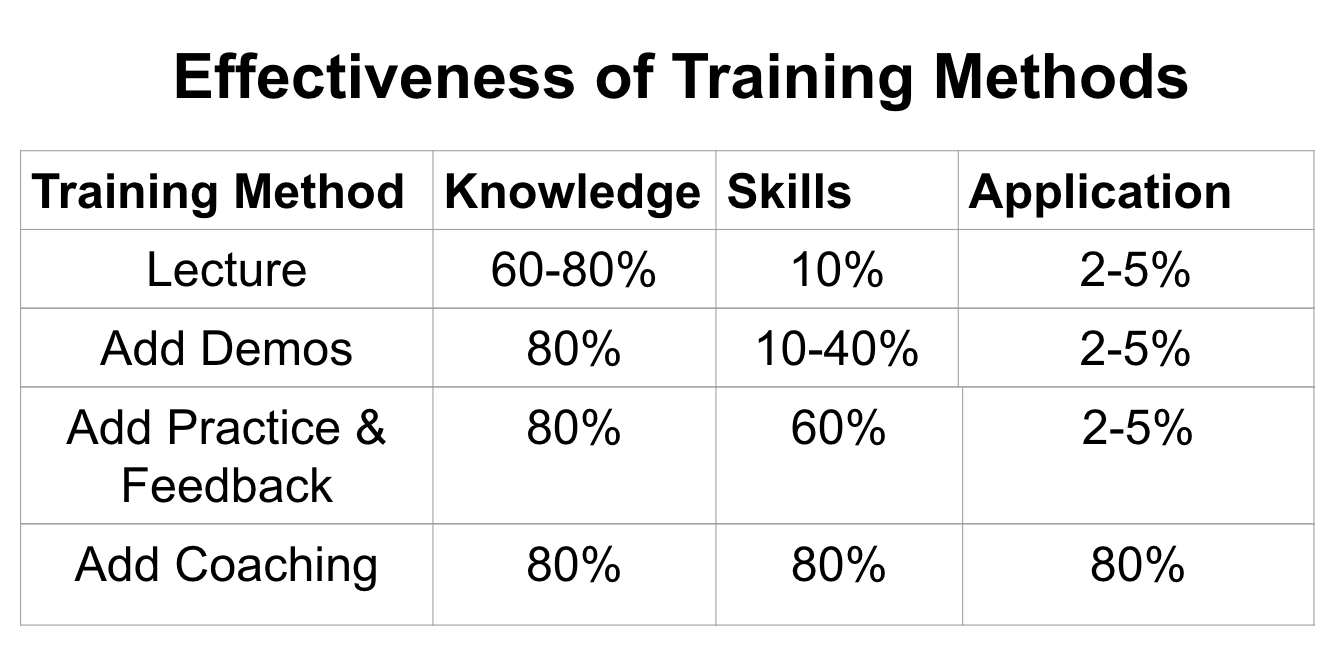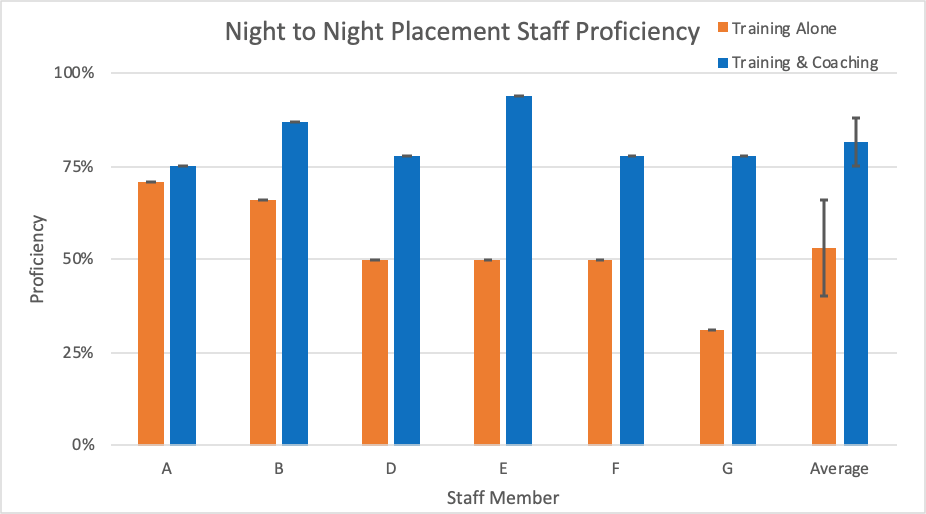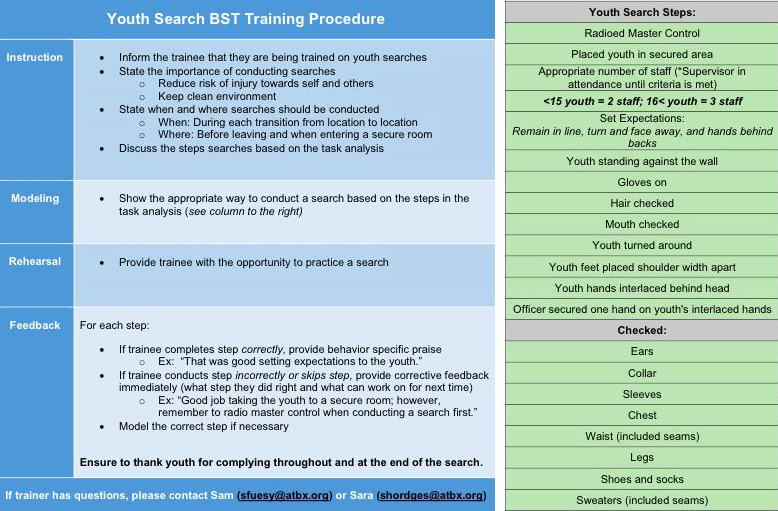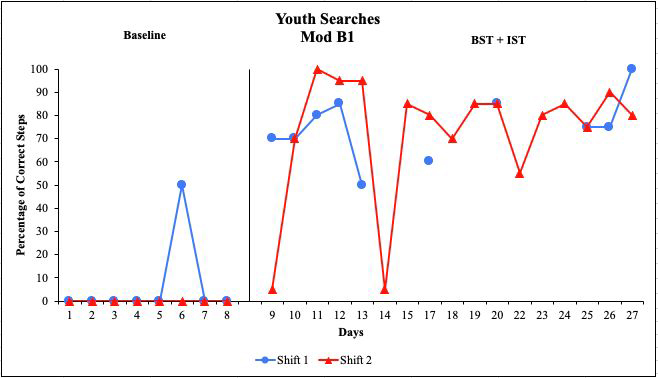Juvenile Justice - Staff Training and CoachingUse Behavior Science-Informed Methods for Staff Training & CoachingIssues: Many staff training sessions are lecture-based. These sessions are not behavior science-informed and do not include follow up coaching. Research shows that without the use of follow up coaching, trainees are unlikely to be able to apply skills learned in a lecture style training in the real world. When follow up coaching is part of training, staff application of knowledge and skills increases to 80% which is much greater than other training methods. Please refer to the bottom line in the table below: .
Staff are frequently taught about mental health and behavioral disorders but not taught strategies to work with youth diagnosed with them. After lecture-based training, staff can often verbally describe the facility operating procedures, but they do not actually implement correct procedures when they are on the job. Solution: Use evidence-based Behavior Skills Training (BST) methods: explanation, demonstration by instructor, practice by staff with feedback from instructor, and repeating these steps as needed until able to pass a competency checklist. When practical, extend from role-play practice to real life practice with youth. Follow BST with the vital coaching component, led by BCBAs, to ensure staff are able to consistently apply the skills they have been trained on when they are on the job. Such coaching also presents positive reinforcement that motivates staff to continue correct procedure.
Behavior Skills Training and follow up coaching should be used to effectively train staff: - facility operating procedures - safety and security protocols (see Youth Search BST Training Procedure below) - youth interactions/boundaries
|





